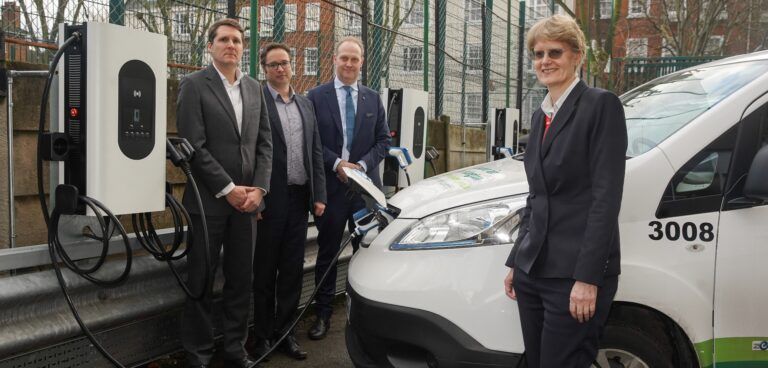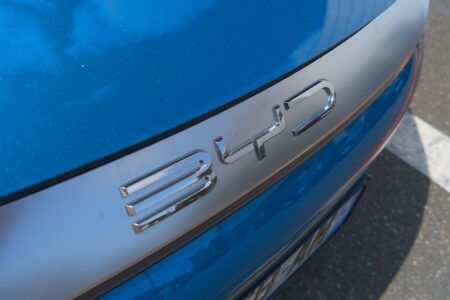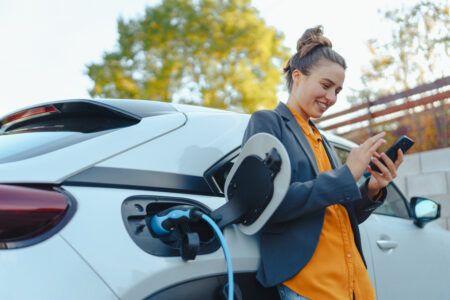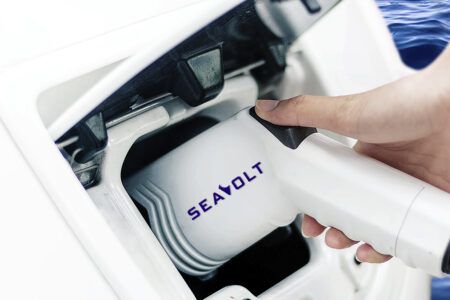In the effort to achieve a net-zero carbon emissions target, the London borough of Islington has launched a smart EV charging project that will electrify its council’s entire fleet of over 500 vehicles.
In partnership with Moixa, the developer of smart battery and electric vehicle (EV) charging software, and Honda, will support Islington Council to achieve its ultra-low emissions zone (ULEZ) emissions standard across its fleet, cutting 1,400 tonnes of dangerous carbon dioxide (CO2) emissions from local air pollution every year.
Five bi-directional vehicle-to-grid (V2G) chargers, manufactured by EVTEC, jointly developed with Honda, will be installed with Moixa’s GridShare software outside Islington Town Hall. The system charges the EV batteries when power on the local network is cheapest and cleanest and discharges power from the car batteries when it is most expensive and carbon intensive. When EVs are plugged in to all of the chargers, the smart technology can provide enough power to cover the whole town hall base load.
Chris Wright, Moixa’s Chief Technology Officer, said: “The EV revolution will put millions of ‘batteries on wheels’ on our roads in the next decade. By using AI-driven charging technology, we can intelligently manage these fleets of batteries, securing lowest-cost charging and highest-impact carbon savings. Our project with Honda and Islington shows what is possible and provides a blueprint for all large organizations to follow.”
Last year, London surpassed the annual legal limit of air-pollution within one month. Toxic air has been at illegal levels in the capital and most urban areas in the UK since 2010 and results in around 40,000 early deaths a year.
Islington Council has declared a climate emergency and committed to achieve net-zero carbon emissions by 2030. The scalable smart charging solution can be applied to all local authorities and businesses with large vehicle fleets, such as logistics companies and utilities. There are 4,844 council-managed vehicles in London alone – 90% of which are diesel. All of these will need to be removed from the capital’s roads in the coming years to meet net-zero carbon emissions and air pollution targets.





